The Financial Reporting Council (FRC) Nigeria proudly celebrates the second anniversary of Dr. Rabiu Olowo’s appointment as Executive Secretary/CEO. Since his appointment by President Bola Ahmed Tinubu on October 12, 2023, Dr. Olowo has led the Council through a period of remarkable transformation, innovation, and global engagement, positioning the FRC as a leader in financial reporting, corporate governance, and regulatory excellence.
Driving the DOSE Agenda: Two Years of Impact
Under Dr. Olowo’s visionary leadership, the FRC has advanced its “DOSE” framework – Digitisation, Operational Excellence, Stakeholder Engagement, and Enforcement, in line with the Renewed Hope Agenda of Mr. President, Asiwaju Bola Ahmed Tinubu, GCFR, delivering measurable progress across key regulatory and developmental priorities.
- Actuarial Standards Development and Talent Pipeline Growth
- Established the Nigerian Actuarial Development Programme (NADP) and the Technical Working Group to foster actuarial growth in Nigeria
- Adopted International Standards of Actuarial Practice (ISAPs 1–8) of the International Actuarial Association and initiated localization as Nigeria Standards of Actuarial Practice (NSAPs).
- Issued Nigeria’s first-ever comprehensive Actuarial Regulatory Framework (Actuarial Practice Regulation – NAPR 2025) as an Exposure Draft.
- Launched nationwide actuarial education initiative, engaging 5,000 university and 800 secondary students.
- Sponsored six university students to undertake Society of Actuaries (SOA) professional examinations and an additional candidate for an MSc in Actuarial Science, fostering the development of future actuarial professionals.
- Strengthened partnerships with NAICOM, PENCOM, NHIS, NAS, IFoA (UK), SOA (USA), CAS (USA), TASK (Kenya), and IAA.
- Initiated integration of Actuarial Science into Nigeria’s secondary school curriculum.
- Strengthening Audit Regulation, Standards, and International Collaboration
- Conducted the first comprehensive practice reviews across 16 audit firms, including the Big Four, covering 143 audit engagements.
- Introduced the NOCLAR framework (FRC Rule 14), aligned with international standards, aimed at enhancing the responsibilities of external auditors for their clients in cases of non-compliance with laws and regulations to uphold the integrity of financial reporting and protect public interest.
- Commenced the Implementation and enforcement of ICFR guidance
- Hosted Inaugural Leadership Summit for Auditors with over 764 participants in attendance.
- Signed an MOU with the Financial Reporting Oversight Board (FROB) of The Gambia to foster African regulatory collaboration.
- Advanced the UK and Nigeria Enhanced Trade and Investment Partnership (ETIP) to achieve Regulatory Equivalence, and mutual recognition of audit qualifications with FRC UK.
- Held Joint international training with Audit Committee Institute (ACI) with other International Audit regulators like PCAOB (USA), IRBA (South Africa), and ICAG (Ghana) made presentations.
- Held sensitisation sessions with 897 practitioners and convened the first FRC–ICAN–ANAN meeting.
- Governance Framework Development and Stakeholder Institutionalisation:
- Developed two landmark codes — the Nigeria Public Sector Governance Code (NPSGC) and the Not-for-Profit Governance Code (NNFGC), currently awaiting Ministerial approval.
- Engagements with top national institutions, including the Judiciary, Accountant-General, Auditor-General, and Governors’ Forum, fostering multi-sector adoption of governance reforms.
- Engaged NJC, OAGF, OAuGF, HoS, and NGF to develop NPSGC roadmap (2026–2029).
- Finalized NNFPGC communication strategy, awaiting Ministerial approval.
- Partnered with ACCA to train stakeholders on governance and audit regulation.
- Completed and issued the Small and Medium Enterprises Corporate Governance Guidelines (SME CCG)
- Promoted adoption of SME-CGG and Business Integrity Certification (BIC) to improve corporate ethics and sustainability.
- Promotion of Corporate Governance for MSMEs, through partnerships with LCCI and Integrity Organisation Ltd., linking governance to small business resilience and certification.
- Strengthening Sustainability Reporting and Global Alignment
- Secured the commitment of President Bola Ahmed Tinubu, GCFR, along with the immediate past Minister of Industry, Trade and Investment, Dr. Doris Uzoka-Anita, for the adoption of IFRS S1 and S2 sustainability standards in Nigeria.
- Launched the roadmap for the adoption of sustainability reporting standards in Nigeria in collaboration with the ISSB Chairman.
- Sustained Leadership in Sustainability Reporting Adoption: Led early adoption of ISSB’s IFRS S1 and IFRS S2 standards for two consecutive reporting cycles (2023 and 2024) by Access, Fidelity, MTN and Seplat Energy, positioning Nigeria among global front-runners in sustainability disclosure compliance.
- Secured landmark collaborations and MOUs with international institutions such as NIRC, GIZ (Germany), Financial Sector Deepening Africa (FSDA), Pan African Federation of Accountants (PAFA), and the ISSB, ensuring technical alignment and cross-border recognition.
- Growth in Voluntary Adoption: The number of Nigerian entities applying ISSB’s IFRS S1 and S2 standards increased from 4 in 2024 to 35 by October 2025, signaling rapid national acceptance.
- Hosted 2nd Regulatory Roundtable on Sustainability Reporting (August 2025).
- Capacity Building and Advocacy: Over 202 entities and 1,705 professionals received hands-on training on sustainability disclosure standards through 32 sector-specific engagements and regulatory roundtables.
- Strengthening MSMEs on Accounting & Financial Reporting
- Collaborated with the United Nations Conference on Trade and Development (UNCTAD) to organize a Train-the-Trainers Workshop on Accounting and Financial Reporting for MSMEs, building national capacity for simplified financial reporting and record-keeping.
- Established a pool of certified trainers to cascade training on accounting and financial reporting nationwide, improving SMEs’ access to finance and compliance with international reporting standards.
- Establishing Robust Valuation Standards and Capacity Building
- Establishment of the Technical Working Group (TWG) for the development of the Valuation Regulations and secured Nigeria’s membership of the International Valuation Standards Council (IVSC).
- Strengthened global cooperation through IVSC membership.
- Developed and publicly exposed Nigeria’s first Valuation Regulations.
- Conducted nationwide training in four geopolitical zones, reaching over 200 professionals, while over 923 stakeholders were engaged.
- Published and distributed the Valuation Guide nationwide.
- Operational Excellence and Digital Transformation
- Achieved the full complement of the seven (7) Directorates by making functional the Directorate of Valuation Standards and the Directorate of Actuarial Standards, and the establishment of the Sustainability Reporting Unit.
- Established the Islamic Financial Services Department for regulatory oversight of non-interest financial services.
- Integrated FRC’s database with the National Identification Number (NIN) verification system for enhanced data integrity.
- Development of Nigeria’s first National Repository Portal for audited financial statements — a centralised digital database enhancing transparency, analytics, and regulatory oversight.
- Implemented a Document Management System and Learning Management System (LMS) to digitize workflows and staff training.
- Strengthened FRC visibility and credibility through structured stakeholder engagement, proactive communication, and consistent publication of the FRC Newsletter (maiden and second editions, 2024 & 2025 editions, ISSN: 3092-9520).
- Launched Nigeria’s first Journal of Financial Reporting and Corporate Governance, positioning FRC as a national thought leader and creating a dedicated platform for research-driven policy, professional discourse, and stakeholder education.
- Increased compliance participation with 31,799 professionals, 715 firms, and 14,657 companies registered within two years.
- Achieved over 60 per cent staff engagement, resulting in measurable improvements in welfare, professional development, and organisational performance.
- Enhanced FRC technical capacity through professional development of FRC staff both locally and internationally.
- Cleared all outstanding employee gratuity claims and severance packages, thereby ensuring financial closure.
Looking Ahead
As Dr. Olowo marks his second anniversary, the FRC remains committed to its mandate of promoting transparency, accountability, and global best practices in financial reporting, auditing, and corporate governance. The Council extends its gratitude to all stakeholders, partners, and staff whose dedication has made these achievements possible.
“These milestones reflect our collective resolve to position Nigeria as a beacon of regulatory excellence and innovation in Africa and beyond. I am deeply grateful for the support of our stakeholders and the commitment of the FRC team. Together, we will continue to drive transformation and uphold the highest standards of integrity and professionalism,” said Dr. Rabiu Olowo, Executive Secretary/CEO.
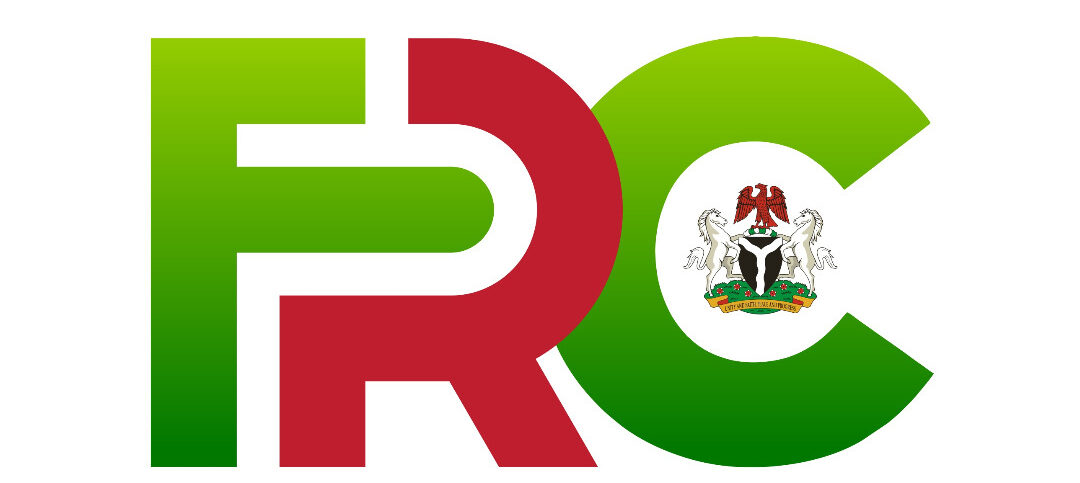

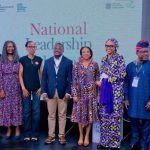
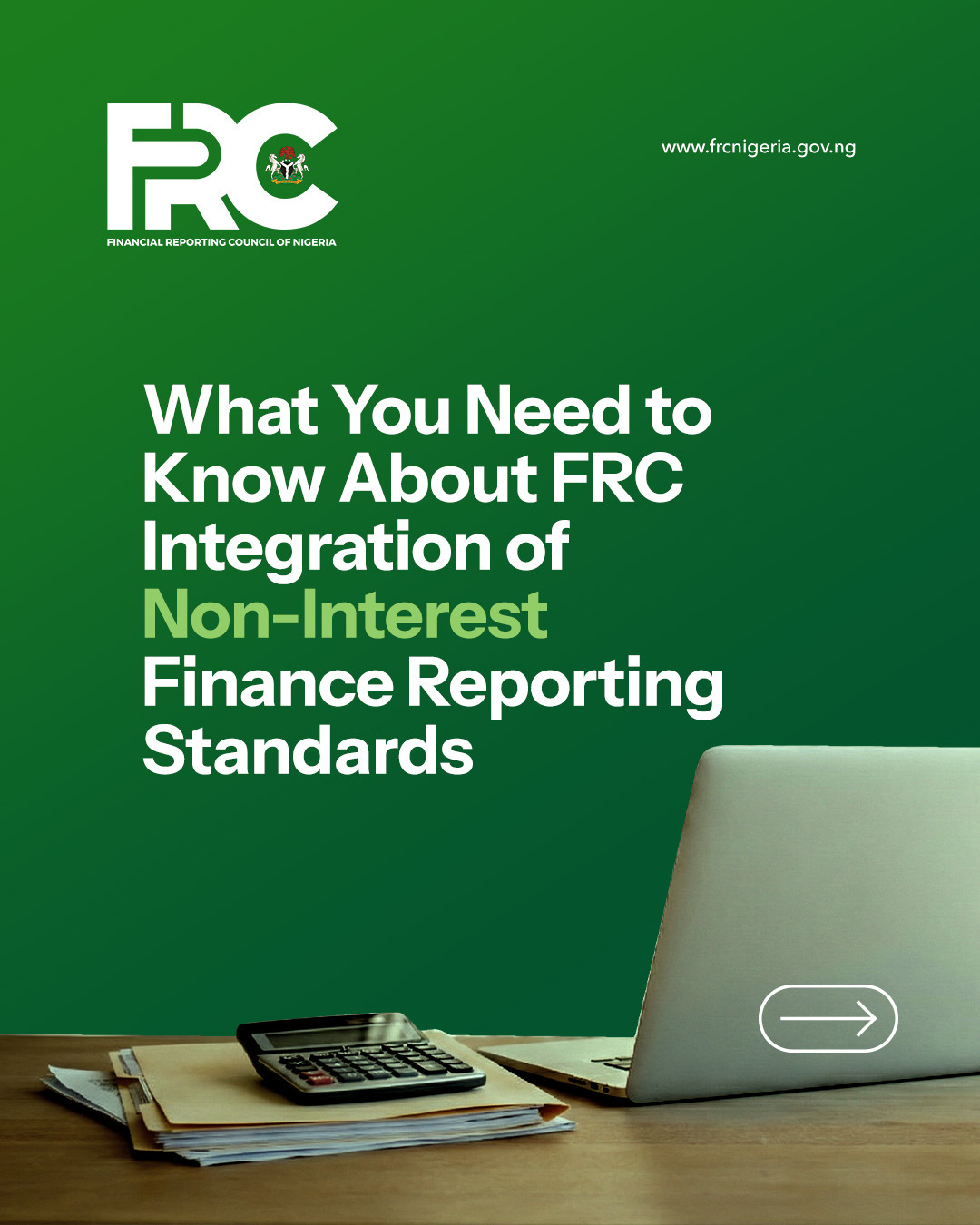
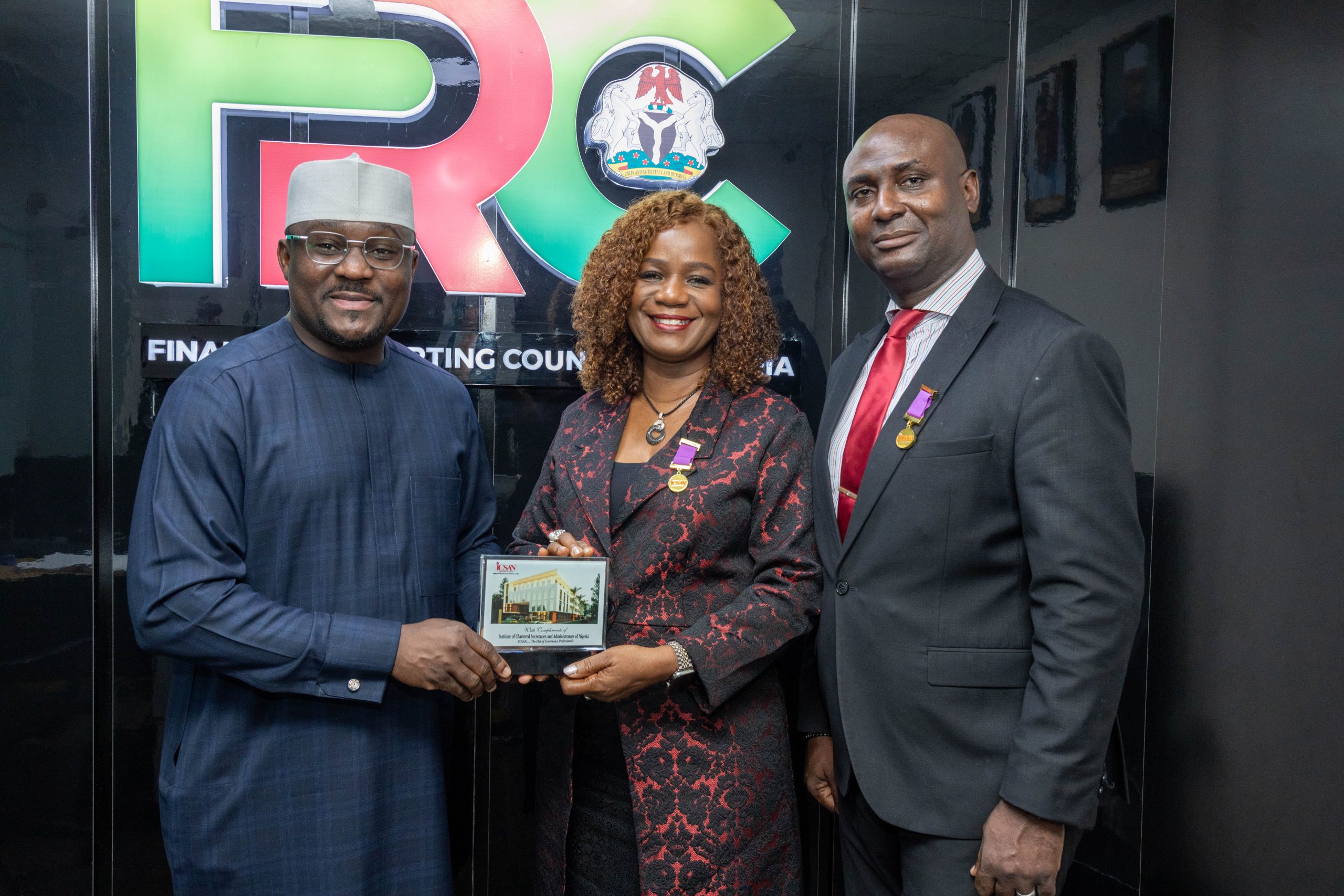
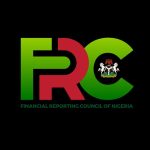

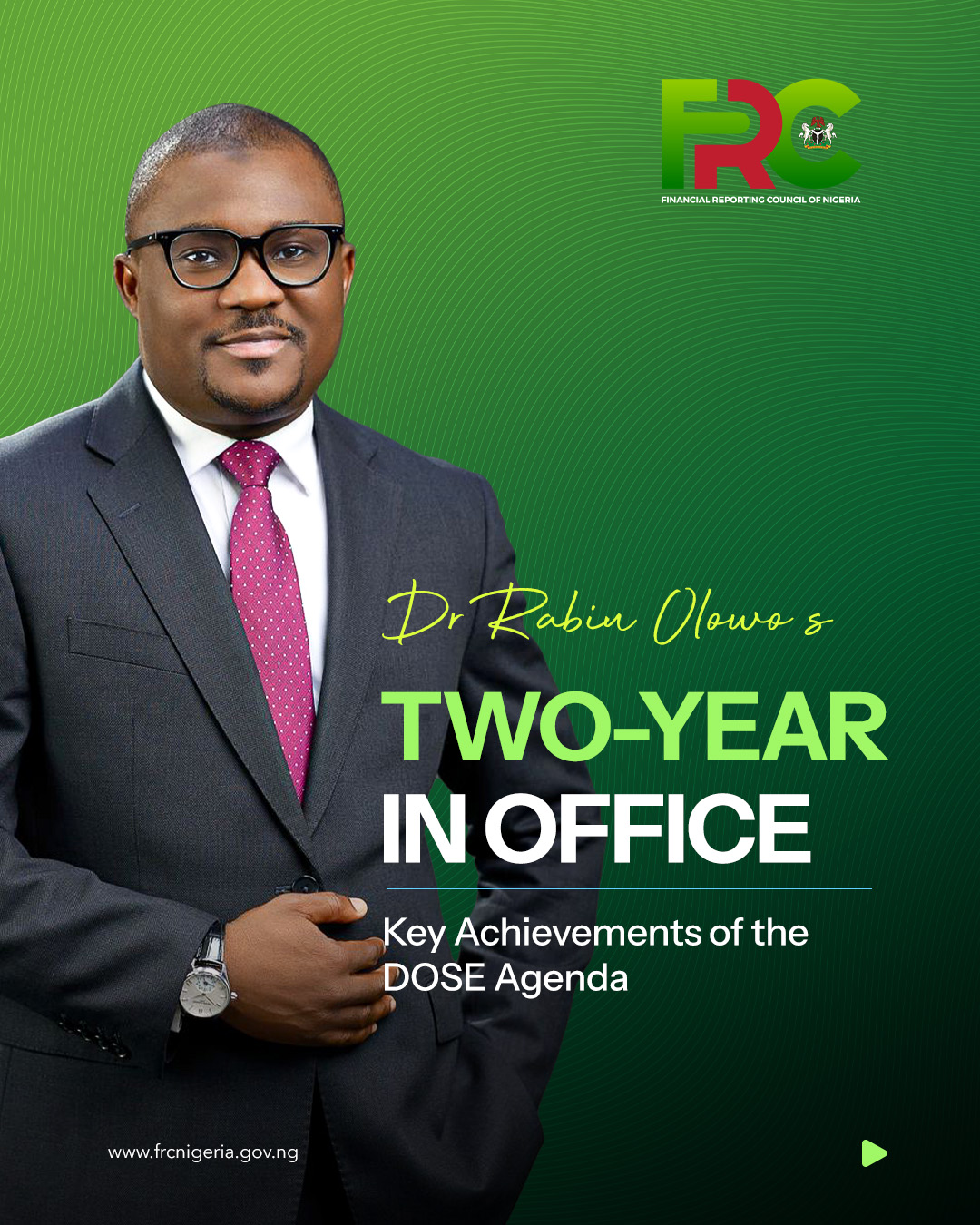
No Comment! Be the first one.